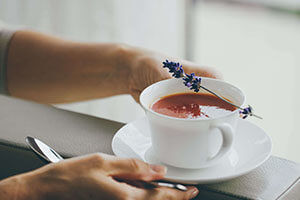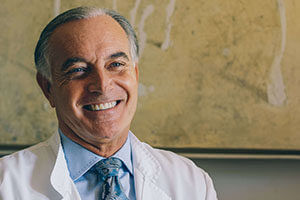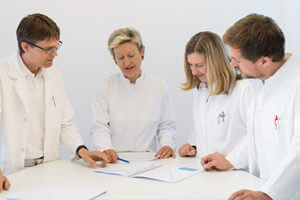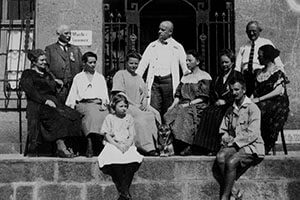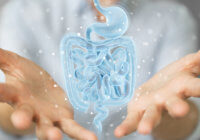While it may be a quick and effective way to shed unwanted pounds, the rewards of a fasting retreat, as ROSALEEN McMEEL discovers, can’t just be measured by the reduction of your waistline.
Imagine choosing to spend your precious annual leave starving for ten days. I don’t have to, because that’s exactly what I did this year. I’d heard a lot about the benefits of therapeutic fasting, which promises to cleanse the body, mobilise healing power and give renewed strength, energy and harmony and, well, minus the food abstinence, it ticked all the boxes. While many attend fasting retreats to shed weight, it wasn’t the driving force behind my decision to stay at Buchinger Wilhelmi in Überlingen, Germany. While I definitely have weight to lose, my reasons went a little deeper. I lost two women very close to me, both in their early forties, last August. One died from cancer, and the other from a sudden heart attack. The losses hit me deeply, and I made a decision to start looking after myself and respecting the life I am lucky enough to have. A busy job and personal responsibilities have taken their toll in the last few years and, like most women, I put my health right down the end of the priority list. This trip offered me a chance to press reset and take stock. But I’d be lying if I didn’t say the idea of a peaceful retreat away from all distractions was the greatest appeal. Basically, my need for a holiday was much greater than a squeaky clean colon.
I was excited to arrive at the Buchinger Wilhelmi clinic, which is just a short drive from Zürich Airport, but was also quietly sceptical. Most guests didn’t even appear to be overweight, so I struggled to understand the motivation. It all seemed a little extreme. It’s not ’til my first evening, at the welcome cocktail (aka fruit juice) reception that I discover that everyone here has a different story to tell. Some have been coming for years, and say that the thing that keeps bringing them back is the sense of focus and energy at the end of their stay. Others have serious health conditions and have saved up to afford a stay at the clinic. Business execs talk about burnout and this being a place to regroup. There are couples and mother and daughter groups travelling together, but most are travelling solo.
The first thing that hits me on arrival at Buchinger is the silence. It’s not that people don’t talk, they do, but it’s in hushed, respectful tones and there is no atmospheric music or noise to disturb the peace. At first, the quiet is a jolt to the system, but I soon find I adjust and even welcome it. Back in my room, when I have the opportunity to play music or put on the TV, I don’t. The silence is a gift.
It takes me a couple of days to orientate myself. There’s a lot to take in, from doctor appointments to treatment scheduling, exercise classes and most importantly, learning about the fasting process itself. On day one, you have what’s known as a “reduction day”, where you eat no more than 800 calories. The next day, you start your fast with the delivery of Glauber’s salt and a cup of tea in your room. This acts as a laxative and helps to flush out your system ahead of fasting. After that, you get soup twice a day – for lunch and again for dinner. From the outset, I’m amazed by the lack of hunger. At home, if I skip a meal, I feel weak within the hour. The soups and morning tea (with honey), which amount to about 250 calories a day, along with mineral salts directed by my doctor, sustain me. I visit the nurse every morning for a check-up, where my weight and general wellbeing is closely monitored. Then comes the enema – an unpleasant necessity.Without food flushing out the toxins your body produces, nature needs a helping hand. By day three of fasting, I hit a wall.
Not from hunger, but I start suffering badly from acid reflux. I try to keep moving, which works until evening, but then I remember I have a Rennie in my bag. It almost feels like cheating, but needs must. Day four is like waking up out of a fog. I bounce out of bed at 7am (I never bounce, let alone out of bed). I feel energised and partake in more of the activities on offer, including a 7k hike. They have everything from meditation and yoga to swimming and guided walks through local forests. Every evening, there is entertainment in the form of a guest lecture or music concert. There are even cookery demonstrations, which border on torture when you can’t taste the results. By day six, I finally realise why people do this and begin to understand how bad I must have been feeling before to feel this good. It’s not quite the “euphoria” I’d been told to expect, but I feel lighter, physically and mentally, and more energised. On my final day, I’m almost sad to break the fast. I’m in the swing of it now, and hunger still isn’t an issue. If I could swap the soups for something slightly more palatable, I’d be happy to keep going. But the final stage is “refeeding” and it’s crucial to the success of your fast, so I need to build my system back up with the most natural ingredients, under the supervision of the clinic, before returning home. My first meal is apple purée and one almond. Yes, one almond. But it’s delicious, and I savour the burst of flavour.
Close to the end of my stay, I meet a 23-year-old Belgian woman. I had spotted her in my first week, and suspected she may have been an actress. She kept to herself and barely made eye contact. When we meet, I discover she’s a student and is two weeks into her fast and tells me she was diagnosed with an auto-immune disease. It caused her legs to dimple dramatically and she was in chronic pain. Her doctor in Belgium was running out of options and told her chemotherapy was her best bet. Terrified by the prospect, she researched alternatives. Her parents saved for her three-week stay, and although she felt guilty at the expense they have gone to, she is thrilled with the results. She has no more pain, is no longer on any medication, and her legs have cleared completely. She’s looking at a vegan lifestyle for the rest of her life, but it’s a small price to pay for living pain-free.
According to the world’s largest scientific human study on the effects of the Buchinger therapeutic method, conducted at Buchinger Wilhelmi, by renowned fasting expert Dr Françoise Wilhelmi de Toledo in co-operation with Prof Andreas Michalsen from Charité University Hospital in Berlin, fasting mobilises the energy stored in the fatty tissue of the human body. In addition to weight loss and a reduced abdominal circumference, in 84 per cent of cases, serious health conditions such as arthritis, type 2 diabetes as well as fatty liver and hypercholesterolemia, high blood pressure and fatigue improve through fasting.
Menopause seems to be a recurring theme among the female guests, and Dr Wilhelmi de Toledo believes therapeutic fasting can make a real impact on female hormones. “Fasting is a multi-dimensional process in the body; on all three levels, body, intellect, the level of your interior life which is a spiritual level, and then the community level – how you relate to other people. In menopause, you have a real physical issue; you produce boosts of oestrogen because the ovaries are suddenly making a lot and then not anymore. If you do a fast, you help your body get rid of the excess of oestrogen because the liver is given a rest, so it can do its job to eliminate the excess oestrogen. You stabilise the mood and on the spiritual level, a woman must mourn for the youth of body function.”
While I didn’t have any serious health issues to tackle, I can attest to feeling 100 times lighter and brighter and healthier on departure. I dropped 13lbs on the scales and 7cm from my waist, but my head is where I feel the biggest transformation. I am more focused than I have been in years. The scramble of thoughts in my head now line up in clear formation, but most of all, I feel really optimistic about the future. If only all holidays could be as transformative.
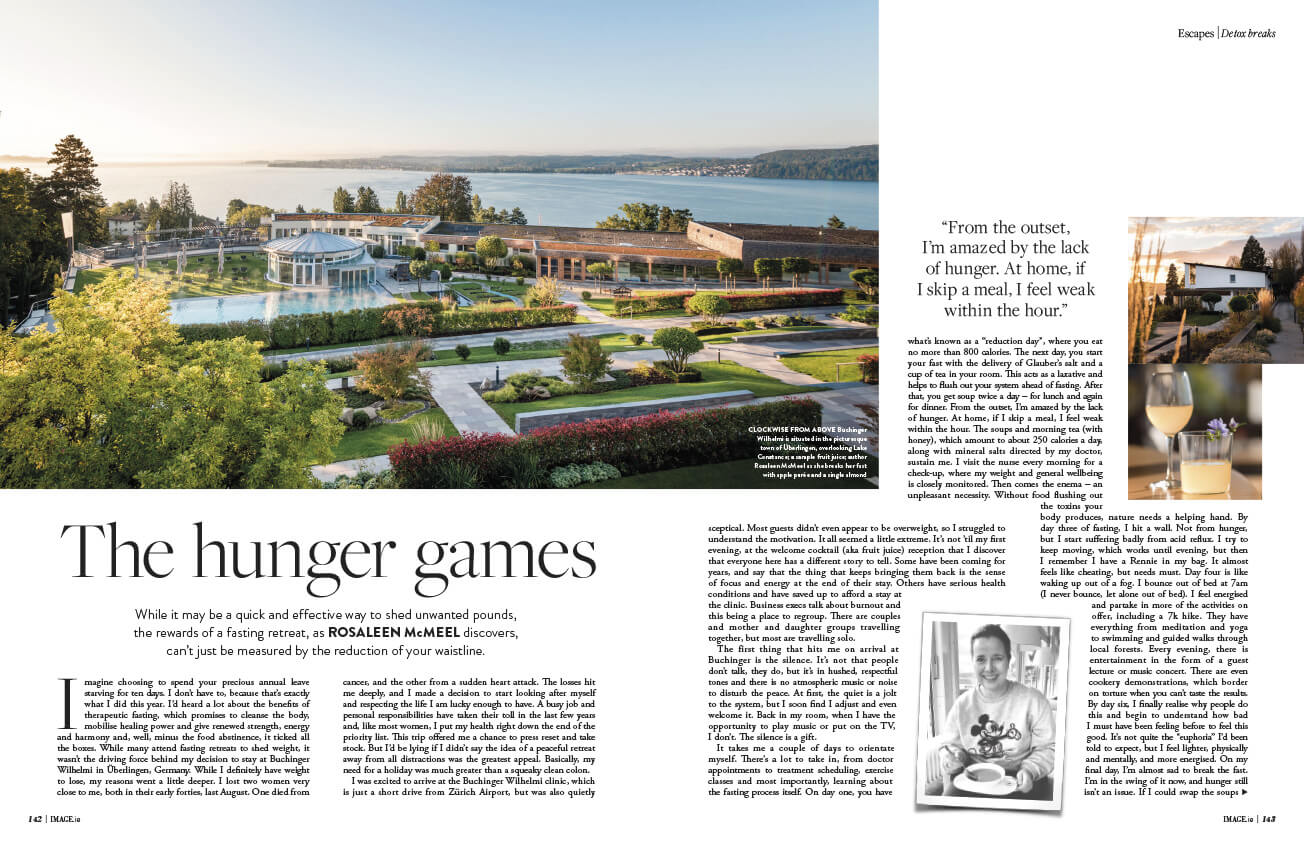
THE LOWDOWN
ABOUT BUCHINGER WILHELMI
Buchinger Wilhelmi is a family-owned business, now in the hands of the fourth generation, MD Leonard Wilhelmi. It was founded by his great-grandfather – doctor, philosopher and pioneer of medical fasting Dr Otto Buchinger. Buchinger spent the First World War as a naval doctor, until he was thrown off course in 1917 by severe rheumatoid polyarthritis. He established his first clinic back in the 1920s after finding fasting gave him respite from his crippling arthritis.
WHAT HAPPENS WHEN YOU FAST
“Humans have the ability to switch their metabolism to fat-reserve burning,” says Dr Françoise Wilhelmi de Toledo. The therapeutic fasting that happens at the clinic, which includes vegetable soups, freshly-squeezed fruit and herbal tea with a small about of honey, “boosts the fasting metabolism”. Fat supplies most body tissues with energy, although the central nervous system, including the brain, requires sugar (glucose) for fuel. It takes a few days until the nervous system switches to burning fat. When fat deposits are broken down, and turned into ketone bodies, glycerol molecules are released, which can then be transformed into glycose, supplying the brain with energy. Initially, your sympathetic system is on alert, sending hunger signals, as your blood sugar levels drop, and adrenaline is released. Then, as you switch to the parasympathetic system, you emerge into what Dr Wilhelmi de Toledo describes as “the calmer waters of the fasting metabolism”. “Your metabolism works more efficiently during a fast,” she says, “as the majority of the digestive processes are no longer required, which signifies considerable conservation of vitamins and minerals.”
KEY RECOMMENDATIONS
While prolonged periods of fasting should always be supervised by experts, Dr Wilhelmi de Toledo recommends some adjustments we can all make to improve our health. “Be nicely hungry at least once a day. So leave a long time when you’re not eating. This means you come into ketosis and you make a metabolic switch, which keeps you focused and your mood better and your cleaning machine activated. Eat properly. Eat food that your grandmother could describe. Be careful with the fats that you eat – only eat the good ones. Be hungry and exercise. Cultivate your inner self. Have times when you are silent and decelerate and learn methods to stop or slow your mental activity when not needed.”
Read the whole article “The hunger games” / published in IMAGE on Dezember 2019:



